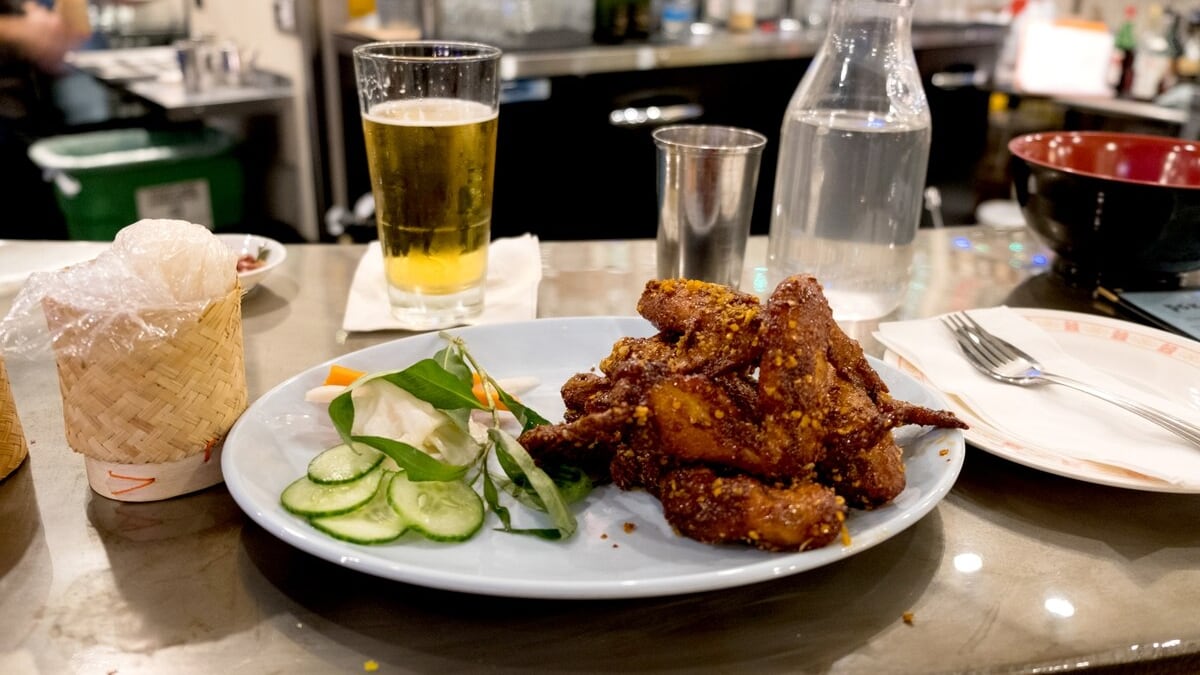I come to praise Pok Pok, not to bury it.
There was never anything inevitable about chef Andy Ricker's Southeast Division Street Thai restaurant, arguably the most famous restaurant in Portland until Ricker announced last Friday it would close for good.
Before the Michelin star, before the James Beard Award and the Restaurant of the Year plaudits and the bestselling cookbook, not to mention an empire that stretched to four states and four quadrants of Portland, Pok Pok began 15 years ago as a wee chicken shack.
It was built by a former bartender and sometimes house painter who'd spent decades backpacking in Thailand during his off months, in a transitional neighborhood few thought much about unless they needed car repairs or broasted chicken.
It began as an insider's secret. Before I ever wrote a word about food in a newspaper, I knew to try its delectable, lemongrass-stuffed charcoal hens only because a friend who lived nearby had begun ordering from its window for nearly half his meals.
The restaurant grew in part out of simple chutzpah, not to mention the business savvy of a shrewd operator and the unexpected, viruslike popularity of its sticky, spicy, fish-sauced Vietnamese wings, which Ricker had concocted with the help of his first (and then only) employee, Ike Truong.
To expand, Ricker mortgaged his home and sunk everything he had into serving Northern Thai dishes rarely seen in America, eschewing familiar pad thai and "red" curry for catfish stewed with fermented turmeric, betel leaf salad and porky glass noodles.
He did so on the then-untested faith that Portlanders would cotton to his deeply researched vision of the "real" Thailand—a dream he marketed with technicolor tablecloths, a Thai-pop soundtrack and the educational zeal of a missionary.
And in the process, Pok Pok changed Portland.
If that sounds dramatic, bear with me a moment.
Pok Pok changed Portland in part because it changed "Portland"—the largely fictional place that exists in the minds of faraway Angelenos and New Yorkers, for whom Pok Pok's crispy wings and once-obscure Northern Thai specialties would become a grail quest. Before Pok Pok, Portland was not a place anyone would visit for East Asian food.
"With a single fried chicken wing at the original Portland Pok Pok in 2007, I dropped my prejudices about non-European cooking in Oregon," wrote much-mourned food critic Jonathan Gold, while heaping praise on Pok Pok's Los Angeles location.
When Pok Pok NY opened in 2012, the usually reticent New Yorker lost its mind over the "heavenly" affogato and anchovy-funked catfish, declaring the latter "so satisfyingly complete you could eat it every day."
Many have since noted that Ricker was able to achieve wild success with Thai food because he benefited from the connections and social status historically accorded to white chefs in this country. And this is almost certainly accurate. But this also wouldn't have mattered if the food he served in those early years weren't so unendingly delicious, and as true as possible to its source—enough so that Ricker is also a known figure in Thailand.
And he used that cultural capital, in part, to awaken a latent hunger in Portland for regional Asian cuisine, one that Thai and Indonesian and Chinese and Kashmiri and Vietnamese chefs have since capitalized on to make Portland into a mecca for East Asian dining.
Pok Pok didn't just change the Portland that New Yorkers knew—it changed the dining habits of Portlanders, and gave license to a new wave of Asian-born entrepreneurs.
Chef Nong Poonsukwattana, an early Pok Pok employee, picked up Ricker's talent for niche marketing to engineer a citywide obsession for the khao man gai chicken and rice she learned to make from her mother. Akkapong "Earl" Ninsom—whose Langbaan, Hat Yai and Eem restaurants make him perhaps the most singular Thai restaurateur in the nation—told WW in 2017 that until Pok Pok, he had no idea he could make a living selling regional or unfamiliar Thai dishes.
"I didn't know you could before," he said. "It was too much risk."
And so when Andy Ricker announced Friday that all Pok Pok restaurants would close as a result of the pandemic, hastening his long-planned retirement in Thailand with his wife, it was not at all the end of an era, as many writers have opined.
That era had already ended. And Ricker helped it end.
In many ways, the torch of regional and adventurous Thai food had already been taken up by Ninsom, by Poonsukwattana and by a whole new generation of Thai chefs who've since made Portland into America's most vibrant and interesting Thai food scene outside of Los Angeles.
In Thailand, Ricker wrote in his farewell message, he now feels honored to "witness younger Thai chefs moving their cuisine into the 21st century with skill, care and a sense of history."
In Portland, you will now have the opportunity to do the same.

